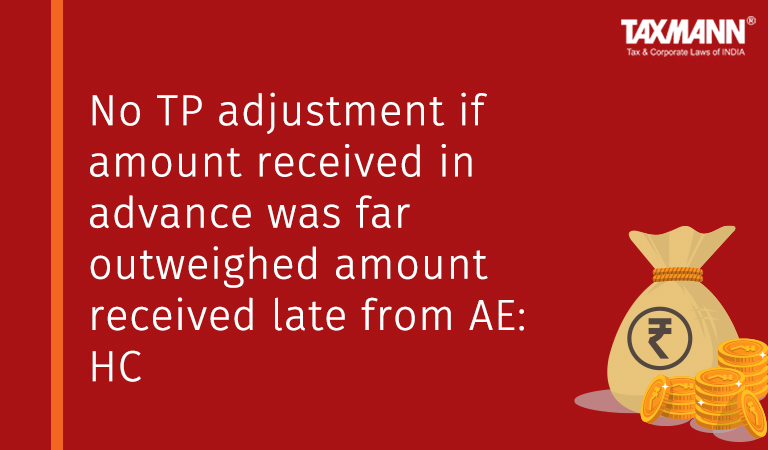No TP adjustment if amount received in advance was far outweighed amount received late from AE: HC
- Blog|News|Transfer Pricing|
- 2 Min Read
- By Taxmann
- |
- Last Updated on 25 October, 2021

Case Details: PCIT v. Mckinsey Knowledge Centre India (P.) Ltd. - [2021] 131 taxmann.com 253 (Delhi)
Judiciary and Counsel Details
-
- Manmohan and Navin Chawla, JJ.
- Ruchir Bhatia, Adv. for the Appellant. Porus Kaka, Sr. Adv. Harpreet Singh Ajmani and Divesh Chawla, Adv. for the Respondent.
Facts of the Case
The instant appeal was filed by the revenue challenging that the order of ITAT. It was submitted that the ITAT had erred in deleting transfer pricing adjustments made on account of interest on receivables. Revenue submitted that the ITAT had failed to appreciate that deferred payment or receivable or any other debt arising during the course of business money was held to be an ‘international transaction’ within the meaning of Section 92B(1).
The assessee contended that Transfer Pricing Officer (TPO), while making the adjustment on account of the delay in receiving the outstanding, had only considered invoices/receivables paid beyond sixty days for making a notional interest adjustment. He ignored payments/receivables made in advance.
Thus, after noting the statement showing the assessee had received more in advance than outstanding, the tribunal held that assessee was a debt-free company and TP adjustment was required.
High Court Held
The Delhi High Court held that under no transfer pricing norm, principle, or evaluation of any “benefit” could there be a one-sided adjustment taking into account delayed invoices while at the same time ignoring invoices/payment received in advance. Consequently, factually there can be no notional computation of ‘delayed receivables’ only ignoring the receivables received in advance.
A perusal of the paper book has revealed that most of the invoices/receivables had been paid significantly in advance. When the period for which the amounts of receivables received in advance enjoyed by the assessee was seen vis-a-vis the amount receivable beyond sixty days, it was apparent that the assessee had received significantly more advance rather than outstanding receivable beyond sixty days.
Accordingly, the notional interest relating to alleged delayed payments in collecting receivables from the AEs was uncalled for as, in fact, there were no outstanding receivables as the amount received in advance far outweighed the amount received late.
Disclaimer: The content/information published on the website is only for general information of the user and shall not be construed as legal advice. While the Taxmann has exercised reasonable efforts to ensure the veracity of information/content published, Taxmann shall be under no liability in any manner whatsoever for incorrect information, if any.

Taxmann Publications has a dedicated in-house Research & Editorial Team. This team consists of a team of Chartered Accountants, Company Secretaries, and Lawyers. This team works under the guidance and supervision of editor-in-chief Mr Rakesh Bhargava.
The Research and Editorial Team is responsible for developing reliable and accurate content for the readers. The team follows the six-sigma approach to achieve the benchmark of zero error in its publications and research platforms. The team ensures that the following publication guidelines are thoroughly followed while developing the content:
- The statutory material is obtained only from the authorized and reliable sources
- All the latest developments in the judicial and legislative fields are covered
- Prepare the analytical write-ups on current, controversial, and important issues to help the readers to understand the concept and its implications
- Every content published by Taxmann is complete, accurate and lucid
- All evidence-based statements are supported with proper reference to Section, Circular No., Notification No. or citations
- The golden rules of grammar, style and consistency are thoroughly followed
- Font and size that’s easy to read and remain consistent across all imprint and digital publications are applied



 CA | CS | CMA
CA | CS | CMA
